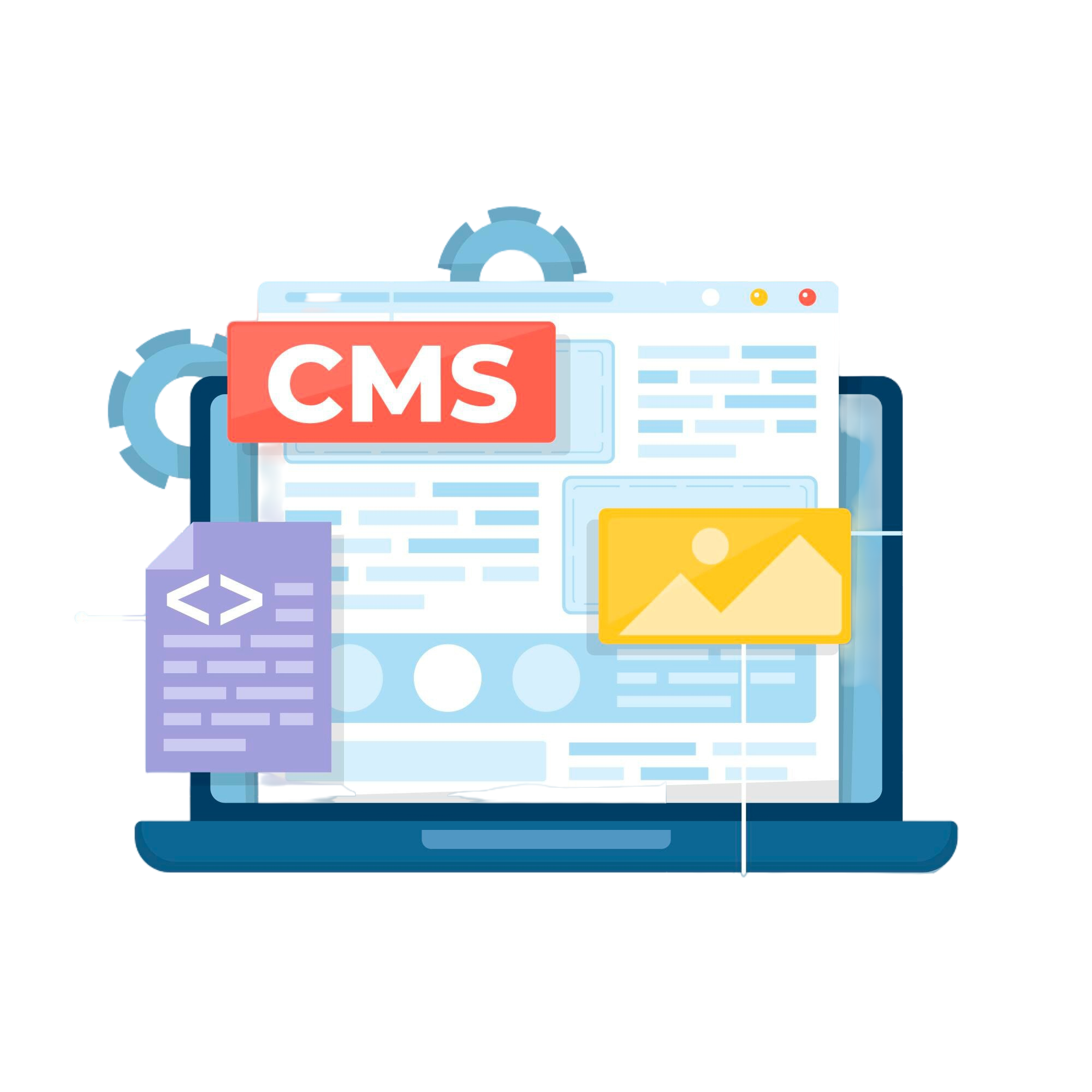Content Management System Marketing Strategy To Drive Website Engagement
Get a Complimentary
Digital Marketing Audit
Get Your Digital Marketing Presence Audited
SEO Audit
on-page SEO, competition analysis, backlinks, and domain authority
Website Performance
conversion rates, traffic levels, and landing pages
Recommendations
optimize your digital presence to generate more leads
CMS Marketing Strategy


What is a CMS?
Key Features of a CMS:
Content Creation
Facilitates the creation and formatting of content, including text, images, videos, and other media.
Content Management
Offers tools for organizing and categorizing content, simplifying the management process.
Publishing
Allows users to publish content on the website and manage its visibility.
User Management
Manages user roles and permissions, controlling access to different parts of the CMS.
Customization
Provides options for customizing the website's appearance and functionality through themes, plugins, and extensions.
The Importance of a CMS Strategy
1. Streamlined Content Management


2. Enhanced User Experience
3. Improved Content Quality


4. Better SEO Performance
5. Scalability and Flexibility

Statistics Highlighting the Importance of Conversion Optimization
- According to Forrester Research a well-designed user interface could increase your website’s conversion rate by up to 200%.
- Econsultancy reports that 74% of companies see an increase in sales after implementing conversion rate optimization (CRO) strategies.
- Adobe’s Digital Marketing Survey found that companies with strong omnichannel customer engagement retain, on average, 89% of their customers, compared to 33% for companies with weak engagement.
Key Considerations for CMS Strategy
User Experience
Prioritizing user experience is crucial when developing your CMS strategy. Ensure that your website is easy to navigate, visually appealing, and accessible across different devices. A positive user experience enhances satisfaction and encourages ongoing engagement.
Security
Security is a critical consideration for any CMS strategy. Implement measures to protect your website and content from potential threats such as malware, hacking, and data breaches. Regularly update your CMS platform and plugins to address security vulnerabilities.
Content Personalization
Personalizing content based on user preferences and behavior can enhance engagement and conversion rates. Consider implementing features that allow for dynamic content delivery and tailored experiences.
Mobile Optimization
With the increasing use of mobile devices, it’s essential to ensure that your CMS supports mobile optimization. This includes creating responsive designs and ensuring that content is accessible and readable on mobile devices.
Training and Support
Providing training and support for your team is important to ensure effective use of the CMS. Offer resources, tutorials, and ongoing support to address any issues or questions that may arise.
Developing a CMS Strategy






Real-World Applications of CMS Strategies
E-Commerce Business


Educational Institution
Non-Profit Organization

Why Choose Bertoli Marketing for Your CMS Strategy?
Expertise in CMS Platforms
At Bertoli Marketing, we have extensive experience with various CMS platforms, including WordPress, Joomla, Drupal, and HubSpot CMS. Our team of experts can help you select and implement the right CMS for your business needs.
Customized CMS Solutions
We offer customized CMS solutions that align with your specific objectives and requirements. Our team works closely with you to develop a CMS strategy that meets your needs and enhances your content management processes.
End-to-End Services
From initial consultation and platform selection to implementation and optimization, we provide end-to-end CMS services. Our comprehensive approach ensures a seamless experience and successful CMS strategy.
Ongoing Support
Our dedicated support team is available to assist with any issues or updates related to your CMS. We provide ongoing maintenance and support to ensure your CMS remains effective and up-to-date.
